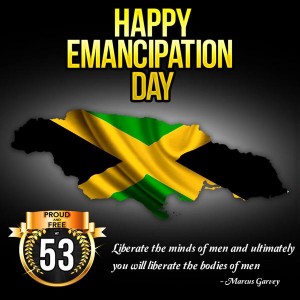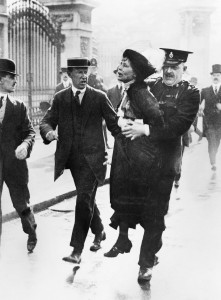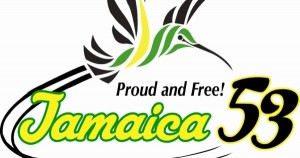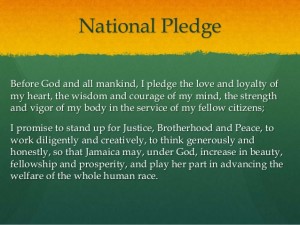
Emancipated Women, Independent Youth
August 11th, 2015
The Emancipation and Independence holidays are now retreating in our rear view mirrors, as we look forward to getting through what is left of our dusty, drought-ridden summer. I have the feeling always that the approach to both these holidays – the thinking behind them – gets recycled in a slightly different form, every year. “Emancipate yourself from mental slavery,” while relevant as ever if you think about it more deeply, has become a hackneyed phrase. It is a pity that a powerful quote from Marcus Garvey, relayed via Bob Marley in one of his most popular songs, should have become a cliché. The sad thing about clichés is that repetition breeds contempt; people don’t think about the true meaning of what they are saying, any more.

We bring out Garvey quotes once or twice a year on public holidays, all wrapped up in shiny black, green and gold paper. Yet Garvey’s writings and philosophies are still not taught in schools.
Be that as it may, I took a little time to think about what these two long and oft-repeated words conjure up in my mind, on a more personal level – quite apart from the Jamaican celebrations, patriotism and even, to some extent, setting its history to one side, for the moment. Emancipation, for example, immediately conjures up – women’s rights. I had a Eurocentric education, and slavery would not have been the first word I would have chosen, if I had been playing that word association game. It would have been an image of Emmeline Pankhurst, most likely – the leader of the suffragette movement in Britain. An unapologetically political figure, she fought for the vote for women and for their social, political and economic freedom. Mrs. Pankhurst was a militant, a die-hard; I can see her throwing molotov cocktails at the front of a modern-day protest, and getting pulled, kicking and screaming, into the back of a police van. In fact, she was arrested several times and went on hunger strike in prison. One of her most popular speeches was entitled “Freedom or Death,” in which she asserted: “The [human] race must be saved, and it can only be saved through the emancipation of women.”

Mrs. Emmeline Pankhurst, leader of the women’s suffragette movement, is arrested outside Buckingham Palace while trying to present a petition to King George V in May, 1914.
Freedom or death. Emancipation is one of those uncompromising words that means everything. You cannot be half-emancipated; you are either free or enslaved. As human trafficking (a euphemism for slavery in today’s world) spreads its global tentacles, we realize we have a long way to go. In Jamaica, we seem a little half-hearted; we are not sure that we have made any progress; to some extent, I sense, we are not really grasping the issue with enough vigor and determination. There have been very few human trafficking convictions. We still seem to confuse human trafficking with smuggling; no, it is not about large numbers of people in boats being shipped around. Although we have made arrests and there is a task force, and public education efforts were made, it all seems to have dropped into a hole. Despite Jamaica’s history, its government and citizens are not seized with the issue.

This year’s Independence Day rhymes nicely, but there are questions. Does independence necessarily equate to freedom?
Independence, on the other hand, does not necessarily mean freedom, at all. It is debatable whether Singapore’s independence fifty years ago meant true political freedom. For a colony seeking liberation from its rulers, independence is a historic event, but thereafter it remains our condition, our state of being, as a nation. This is why we continuously analyze and nag at the question every year: Are we really independent? What do we mean by it?
What does independence mean for an individual, though? As a young woman, I gained a modicum of independence when I went away to university at age nineteen, although half way through each term I was missing my mother’s cooking terribly. These days, it’s harder for young people to gain their independence than in the past, when the divisions or chapters in one’s early life were more clearly defined. Many middle-class Jamaicans, recent graduates and so on, still live with their parents. Independence these days is more than ever to do with simple economics.

Jamaica’s National Pledge is beautiful, but reciting poems and songs doth not an independent person make.
I think it is the element of self-awareness that has to go along with independence of thought that is most challenging for many of us. Just as a nation must have a strong, true sense of its own identity, so individuals – especially our young people – must develop a sense of who they are, not what others want them to be. This is not necessarily something they will learn in school, no matter how many times they recite the National Pledge or sing the school song. It is not about reciting a poem or a mathematical rule in unison.It is not about going along with the crowd, but quite the opposite.
Becoming an independent person in thought, belief, desire and will is a deliberate process that all young people must undergo. This is why education that includes critical thinking – putting your hand up to ask a question, or to contribute a thought – is essential in the modern age. Who wants to fade into the background, still quietly copying down someone else’s thoughts?
“Don’t let the noise of others’ opinions drown out your own inner voice,” said Steve Jobs in his famous commencement speech at Stamford University. Young people must find their essence – their core being. Educators, parents, friends, family must help them along the way, as well as inspirational figures like Jobs, Nelson Mandela and many others who have gone before. Young people must seek out those mentors, those teachers, or their souls are lost.
Are we free? Are we independent? Or do we still cling to the things that enslaved, imprisoned and reined us in? Sometimes it’s more comfortable to live with those things; to settle down within those limitations.
However, one more point – and I quote the young musician philosopher Criss Jami: “Without love, strength and independence are prone to losing every bit of their worth; they become nothing more than a fearful, intimidated, empty tent lost somewhere in the desert of self.”
So, let our youth grow up strong, independent – and loved.
Tags: Bob Marley, Criss Jami, Emancipation, Emmeline Pankhurst, Independence, Jamaica, Marcus Garvey, National Pledge, slavery, Steve Jobs, suffragette, women's rights
The Gleaner reserves the right not to publish comments that may be deemed libelous, derogatory or indecent.
To respond to The Gleaner please use the feedback form.
- We Are the Zoomers
- Living Online with Humans and Birds: NAOC 2020
- Human Trafficking and the Problem of Public Education
- Down Memory Lane
- Are We Ready to Recover from COVID-19?
- Road Safety Matters: Is Your Vehicle Safe?
- Sexual Harassment, Me Too, and the Minister’s Disturbing Giggle
- The Vulnerable Senior Citizens, Private Care Homes and COVID-19
- A Muddle Over Masks
- Here is Something Life-Saving You Can Do: Give Blood!



